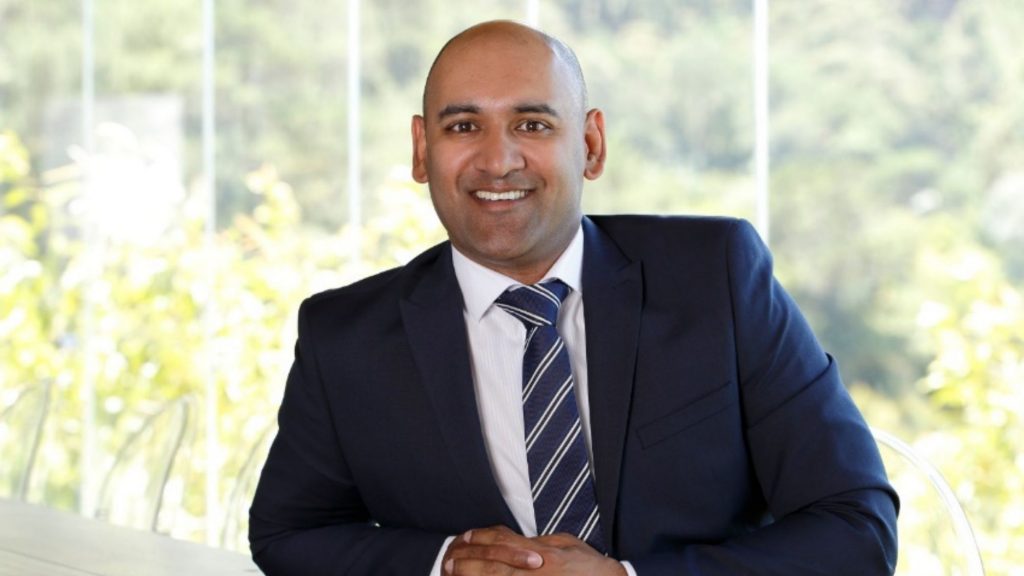South Africa’s esports scene is set for a major showdown as Hyprop and MTN introduce SHIFT COD, a Call of Duty tournament forming part…
[Opinion] ‘Grow SA through local venture capital funding’

Justin James, co-founder and investment partner at Fireball Capital, explains how his venture capital fund management firm, has observed an exponential acceleration of external enablers such as blockchain, corporate venture and funding platforms in South Africa.
Venture capitalists (VCs) in developed countries have provided the capital and support needed to enable entrepreneurs to create innovative solutions to multiple challenges, the results of which have dramatically changed the way people all over the world live and operate.
While the Covid-19 pandemic posed a challenge to society, it also accelerated the widespread adoption of technology. According to a survey by McKinsey Global, companies have accelerated the digitization of their customer and supply-chain interactions and of their internal operations by three to four years. The transformative effect of technology is now no longer a “nice to have.”
In an emerging country like South Africa, innovative technologies have the power to solve the social problems exacerbated by a budget-constrained government, as well as poor service delivery in the healthcare, education, security, and transport sectors.
The social impact of portfolio companies like HearX, Aura and Ozow highlights South Africa’s problem-solving capabilities and the impact of South African VCs.
HearX is a healthcare tech-enabled business that was ideated to provide hearing tests in underprivileged communities in South Africa. Today it has developed into one of the most sophisticated providers of audiometric technologies.
Consumers with mild to moderate hearing loss in the United States now have access to affordable, medical-grade hearing aids and telehealth support from hearing experts based in South Africa. Thus, the company is creating sustainable jobs locally while providing solutions that help to improve the lives of people suffering from hearing loss.
Another example is Ozow – a payment solutions business that enables anyone with a bank account to make payments seamlessly, securely, and instantly without the need for credit or debit cards.
This enables seven out of eight South Africans to be included in the digital economy and allows businesses to save on high fees from the card and other payment methods, resulting in cheaper fees and products for the end-user.
These South African businesses, along with many others, did not just appear overnight. They are the result of sustained innovation and effort by the entrepreneurs, and access to venture capital from angel investors and local VCs.
Venture capital explosion in SA
As a local VC fund management firm, passionate about accelerating the success of tech startups, Fireball Capital has, with a great deal of excitement, observed an exponential acceleration of external enablers such as blockchain, corporate venture and funding platforms in the South African technology market.
The biggest enabler for venture success across the world has been the abundance of capital. The other key building blocks have been the adoption of global internet access, smartphone penetration and problem-solving entrepreneurs, coupled with research-based universities, legal and regulatory stability, a risk-taking culture, and a global mindset.
Like other venture ecosystems around the world, the South African venture ecosystem requires its own enablers to thrive.
Successful VC investing requires unique skill sets and a supportive and enabling ecosystem that includes institutional investors, corporates, and industry leaders to synthesise the flare and vision of problem-solving entrepreneurs by giving them access to a seamless capital slingshot. The unique skill sets required include mentoring, coaching, and an ability to support and challenge conventions through experience.
Other global VC ecosystems on the other hand have evolved at warp speed. In 2010 there were 16 private unicorns, a decade later there are more than 700 private unicorns. The world is becoming flatter and flatter.
It is no longer a Silicon Valley and Beijing game, which collectively accounts for 400 of the 700 global unicorns; it is now an open playing field. Technology has essentially democratised the information of the world, allowing those that have access to tech touchpoints to change their lives for the better.
The South African VC market is offering investors assets that stimulate innovation and growth, the result of which will be long-term sustainable job creation. There is clearly a need for the services that local entrepreneurs bring.
There has also been a trend in companies opting to de-list from the Johannesburg Stock Exchange (JSE). The latest JSE’s financial results revealed that 25 companies were delisted from the JSE in 2021. It follows 20 delistings in 2020 and 24 delistings in 2019.
This is a sign of value shifting from the public to the private market, as corporations and investors search for alpha in private markets. Globally, the biggest pension fund and asset allocators are moving “off-exchange” and into the private markets such as venture capital.
As a local VC, we believe that the world’s greatest problems including global warming, providing food security for a growing population, affordable healthcare, quality education for all and financial inclusion will be overcome through the use of technology.
South Africa has a deep talent pool, and these talents should be nurtured and retained by creating an enabling environment and funding through local VCs.
However, to increase the velocity at which innovation takes place in the country, VCs should utilise global capital and networks to ensure the success of the venture journey from the seed stage to the public market.
The ecosystem is dependent on inclusivity and strong, clear alignment across all stakeholders involved, and this will be achieved if we all play our part.
- Justin James is the co-founder and investment partner at Fireball Capital.
ALSO READ: Angel investors plug early-stage funding gap in Africa

